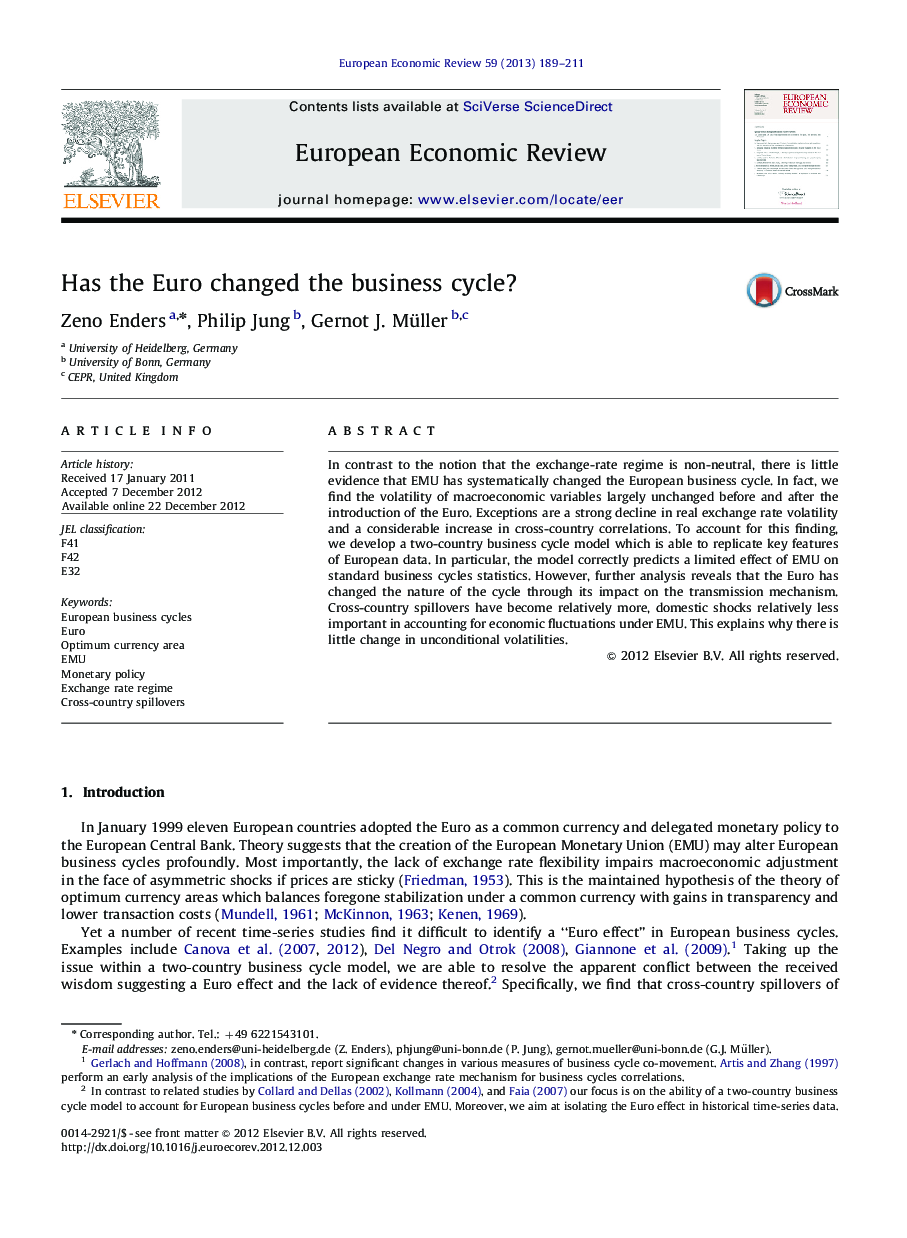| Article ID | Journal | Published Year | Pages | File Type |
|---|---|---|---|---|
| 5067015 | European Economic Review | 2013 | 23 Pages |
In contrast to the notion that the exchange-rate regime is non-neutral, there is little evidence that EMU has systematically changed the European business cycle. In fact, we find the volatility of macroeconomic variables largely unchanged before and after the introduction of the Euro. Exceptions are a strong decline in real exchange rate volatility and a considerable increase in cross-country correlations. To account for this finding, we develop a two-country business cycle model which is able to replicate key features of European data. In particular, the model correctly predicts a limited effect of EMU on standard business cycles statistics. However, further analysis reveals that the Euro has changed the nature of the cycle through its impact on the transmission mechanism. Cross-country spillovers have become relatively more, domestic shocks relatively less important in accounting for economic fluctuations under EMU. This explains why there is little change in unconditional volatilities.
⺠Standard business cycle statistics largely unchanged after introduction of Euro. ⺠Except for reduced real exchange rate volatility and higher cross-country correlation. ⺠We calibrate a two-country business cycle model to Euro area data. ⺠We find that cross-country spillovers increase strongly with the Euro. ⺠As domestic shocks become less important, unconditional variances fairly stable.
